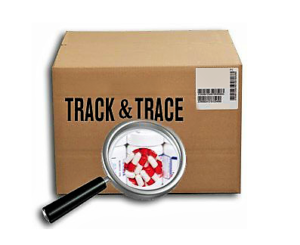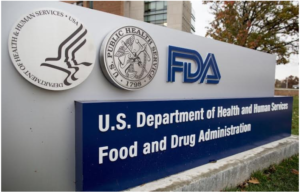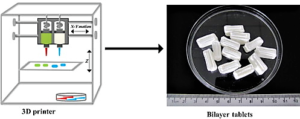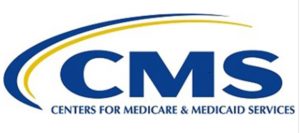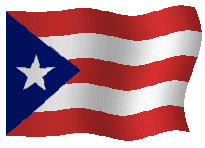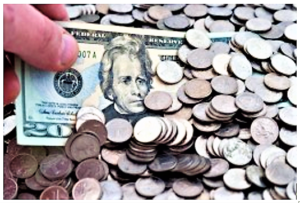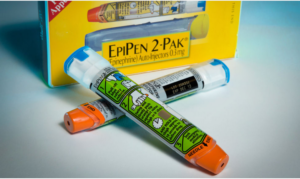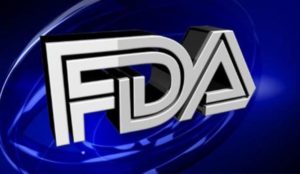- From hackers to hurricanes, new threats loom for pharma supply chains in 2018 (fiercepharma.com)
Disasters, both natural and manmade, wreaked havoc on pharma supply chains this year, exposing vulnerabilities and costing the industry hundreds of millions, if not billions, of dollars...Hurricanes took out power and plants in Puerto Rico...Less visible but much more sinister was the cyberattack that managed to penetrate systems at Merck & Co...Experts say both kind of threats are only going to get worse...Some natural disasters, like earthquakes, don’t follow seasons and can’t be tracked. They just happen...The FDA pointed out that the Federal Food, Drug, and Cosmetic Act, does not include a specific provision giving the agency the authority to require a contingency plan for preventing drug shortages if a facility goes offline, regardless of the cause...Some events have nothing to do with weather or geography. Merck was the only drugmaker to publicly acknowledge that it had not adequately protected its computer systems and was a victim of the Petya cyberattack...Expect this trend to continue in 2018...the disruption caused by ransomware to industrial organizations in 2017 didn’t directly affect the automation controllers, “we expect that a new, more damaging type of ransomware will specifically target controllers” in 2018...if those threats were not enough to keep pharma executives up at night...the chilling observation that North Korea, “has quietly developed a cyber army capable of unleashing attacks against critical infrastructures that could have global implications.”
- Will Pharma Meet the Drug Tracking Deadline? (biopharminternational.com)
Manufacturers and trading partners struggle to meet drug tracking requirements...As FDA and industry near the halfway mark in the 10-year process for establishing a national electronic drug tracking system by 2023, there’s considerable concern among pharma companies, wholesaler/distributors, and pharmacists about meeting the deadline. The process for establishing the rules and infrastructure for the track-and-trace system envisioned in the Drug Supply Chain Security Act, part of the Drug Quality and Security Act of 2013, is proving to be complex and challenging for all parties...FDA recently delayed requiring drug manufacturers to imprint unique product identifiers on individual packages by November of 2017, saying it would not enforce that policy until Nov. 27, 2018. While major pharma companies are meeting the earlier time-frame for serializing and identifying drug packages, many generic-drug makers and contract manufacturers reported confusion over who is responsible for devising the identifiers and for confirming compliance with requirements. And while manufacturers applauded gaining an additional year to fully identify individual drug packages, pharmacists and other supply chain partners raised concerns that the delay would make it even more difficult for them to comply with reporting requirements for 2018 and 2019...
- FDA Begins Adding Suffixes to Newly Approved Biologics’ Names (raps.org)
The US Food and Drug Administration this week began adding four-letter meaningless suffixes at the end of newly approved biologics' nonproprietary names, signaling a shift in policy from only adding the suffixes to biosimilars' nonproprietary names since 2015...The first additions of the meaningless suffixes came for...approval of Roche's Hemlibra (emicizumab-kxwh), one of the first new medicines in nearly two decades to treat people with hemophilia A, and...approval of Ultragenyx Pharmaceutical's Mepsevii (vestronidase alfa-vjbk) to treat pediatric and adult patients with a rare inherited condition called mucopolysaccharidosis type VII (MPS VII), also known as Sly syndrome...The newly added suffixes were not preceded by an announcement from FDA, though the shift was not entirely unexpected...Back in January, FDA finalized guidance on how biosimilars and their biologic reference products' names should include this four-letter, FDA-designated meaningless suffix attached at the end of the nonproprietary name...But until this week, only new biosimilars had the suffixes attached to their names. The agency did not respond to a request for comment on why new biologics' nonproprietary names included the suffixes this week.
- Drug shortages loom from hurricane-impaired manufacturing in Puerto Rico (pharmacist.com)
Damaged Baxter plants on the island make large portion of saline products, already in short supply...hospitals are feeling even more compromised from the shortage ever since production at Baxter facilities in Puerto Rico was hampered...by hurricane Maria...“Clearly this has a huge impact on hospitals as well as home infusion pharmacies and infusion centers since many medications given by the I.V. route are mixed into these bags and given by infusion,” said Matthew Grissinger, RPh, from the Institute for Safe Medication Practices...The most severe shortages are being felt with small-volume parenteral solutions, such as the 50 and 100 milliliter minibags of sodium chloride 0.9%, dextrose 5%, and I.V. nutritional products made by Baxter...the American Society of Health-System Pharmacists had been hearing from both large and small hospitals alike that they only had a 1- to 2-week supply of small-volume parenteral solutions left. ASHP has been working around the clock to identify solutions and strategies for facilities...FDA has also been actively involved, and is monitoring a list of about 30 critical drug products that are either manufactured solely or primarily in Puerto Rico. Of those 30 drugs, 14 are sole-source products, meaning there are no alternatives available...To mitigate the shortage of I.V. solution products, FDA is doing something that it rarely does: import products from overseas plants. In this case, FDA is allowing temporary importation of an alternative supply of sodium chloride 0.9% injection bags, dextrose 5% injection bags, and metronidazole injection into the U.S. from Baxter facilities in Ireland, Australia, Mexico, and Canada...
- FDA lays groundwork for regulating 3D-printed drugs (biopharmadive.com)
The Food and Drug Administration has issued guidance on 3D printing and the role it plays in manufacturing healthcare products...While the guidance focuses largely on medical devices, Commissioner Scott Gottlieb acknowledged in a Monday statement that the innovative technology also holds the potential to disrupt drug development. Already, the agency has approved one medicine crafted with 3D printers, Aprecia Pharmaceutical Co.’s Spritam..."This is likely just the tip of the iceberg given the exponential growth of innovative research in this field," Gottlieb said, referring to the 3D-printed products on the market. "We envision that burn patients in the near future will be treated with their own new skin cells that are 3D printed directly onto their burn wounds. Further down the road, there is the potential for this same technology to eventually be used to develop replacement organs."...The promise of 3D printing, however, could spark new innovation and invention in how drugs, and the devices that deliver them, are formulated and made. In response, the FDA is moving to stay ahead of the technology's advances....
- Massachusetts grabs spotlight by proposing new twist on Medicaid drug coverage (healthcarefinancenews.com)
Massachusetts' state Medicaid program hopes to road-test an idea both radical and market-driven. It wants the power to negotiate discounts for the drugs it purchases and to exclude drugs with limited treatment value..."This is a serious demonstration proposal,"..."They're not simply using [this idea] as an excuse to cut Medicaid. They're trying to take a step toward efficiency."...If the Department of Health and Human Services approves the...plan, others will likely take similar action...Currently, state Medicaid programs are required to cover almost all drugs that have received Food and Drug Administration approval, including multiple drugs from different manufacturers used for the same purpose and in the same category. In exchange, manufacturers must discount those drugs -- typically based on a set percentage of the list price...The idea is Medicaid's vulnerable beneficiaries get medications they need and the state doesn't go broke paying for them...Massachusetts wants to go a different route, requesting a federal exemption known as a Section 1115 waiver, which is meant to let states test ways of improving Medicaid. It wants to pick which drugs it covers based on most beneficiaries' medical needs and which medicines demonstrate the highest rates of cost effectiveness...It says it will be able to negotiate better prices as a result, saving public dollars while maintaining patients' access to needed therapies...
- FDA asks that Baxter saline plants in Puerto Rico get power restored ahead of others (fiercepharma.com)
The FDA has been helping dozens of U.S. drugmakers in Puerto Rico get power and supplies to their plants in the wake of the infrastructure disaster left by hurricanes Irma and Maria. But with a shortage of saline getting worse in the U.S., the FDA is moving three Baxter plants on the island to the front of the line...FDA Commissioner Scott Gottlieb today said that state and federal authorities have been responsive to its request that a “subset of critical production facilities,” including those plants that manufacture IV saline bags, get priority in getting fuel for their generators and hooked back to the grid ahead of others...“Unfortunately, most manufacturers are still relying on generator power, and even those that have returned to the electrical grid continue to face interruptions as the grid is rebuilt," Gottlieb said. "We’re hopeful that these companies manufacturing medically important products will see their power needs addressed on an accelerated basis.”...A shortage of some presentations of the medically essential saline solution has fettered hospital care since at least 2014. But the issue immediately got worse when hurricanes knocked down power lines and tore up roads in Puerto Rico, interrupting production and distribution from more than 40 U.S. plants on the island, including Baxter’s three producing saline...
- Bumper crop of new drugs fails to lift big pharma R&D returns (reuters.com)
It is shaping up to be a bumper year for drug approvals, with U.S. officials clearing twice as many novel medicines as in 2016, yet returns on research investment at leading pharmaceutical companies are down...In fact, projected returns at 12 of the world’s top drugmakers have fallen to an eight-year low of only 3.2 percent...The disconnect reflects the rising cost of developing new drugs, meager peak sales expectations for individual products and the fact that younger biotechnology companies are accounting for a growing proportion of new products...So far this year, the Food and Drug Administration...has approved 41 novel drugs compared with 22 for the whole of 2016...It’s been a great year for approvals in 2017...But for the giants of the pharma world...things are not so rosy. This decade has seen shrinking profitability in their research labs, with the average internal rate of return down sharply from 10.1 percent in 2010 to 3.2 percent this year...A separate group of four large biotech companies are projected to enjoy an IRR nearly four times higher at 11.9 percent. The calculations are based on long-term sales forecasts...The biotech companies are seeing more success...biotechs typically had a leaner cost structure...
- FDA issues guidance that could make it easier for EpiPen rivals to come to market (cnbc.com)
When the controversy over the price of the EpiPen exploded late last summer, many consumers asked why there was no substitutable generic version available...The answer was complex: while the key ingredient in the anaphylaxis treatment, epinephrine, has been available for decades and is no longer covered by a patent, the delivery device proved hard for generic competitors to copy to a degree that would satisfy regulators...the Food and Drug Administration announced guidance seeking to change that, potentially streamlining a path to market for generic copies of complex medicines like the EpiPen and others...The FDA guidance says that generic copies with some design differences may be approved as substitutable products, as long as those differences don't affect patients' ability to use the product the way it's intended...Dr. Scott Gottlieb, said.."Under this guidance, so long as the generic applicant is able to demonstrate with data, where appropriate, that differences in design of the generic product do not affect the clinical effect or safety profile when the generic is substituted for the branded product, the generic product can be approved as a competitor to the branded drug where all other requirements for generic approval are met,"...
- FDA Expands Generic Drug Priority Reviews (raps.org)
Talk of bringing down the price of pharmaceuticals often hinges on generic competition, and the US is seeing approvals of new generic drugs faster and more consistently than ever – a trend likely to continue...The progress comes as Food and Drug Administration Commissioner Scott Gottlieb...indicated that the agency will expand which abbreviated new drug applications will see priority reviews..."Earlier this year we made changes to how we prioritize the agency’s generic drug submissions. The goal was to prioritize the review of generic applications until the FDA has approved three generic versions of each particular drug," Gottlieb said in a statement. "Today we’re expanding this competition-focused policy to prioritize any application that can meet the FDA’s approval standards at the point when the 180-day exclusivity period expires on a first generic entrant to a branded medicine."...The shift could accelerate generic competitors to market more quickly and help bring down costs, and comes a day after the Federal Trade Commission held a workshop on drug competition.


